NIL
Behind the Wisconsin v. Miami tampering lawsuit over transfer DB Xavier Lucas that was …
The legal enforceability of a revenue share agreement between a football player and institution is at the crux of a landmark legal case between two Power Four schools that could have wide-ranging implications. The University of Wisconsin sued the University of Miami on Friday over alleged tampering and tortious interference of a two-year agreement with […]
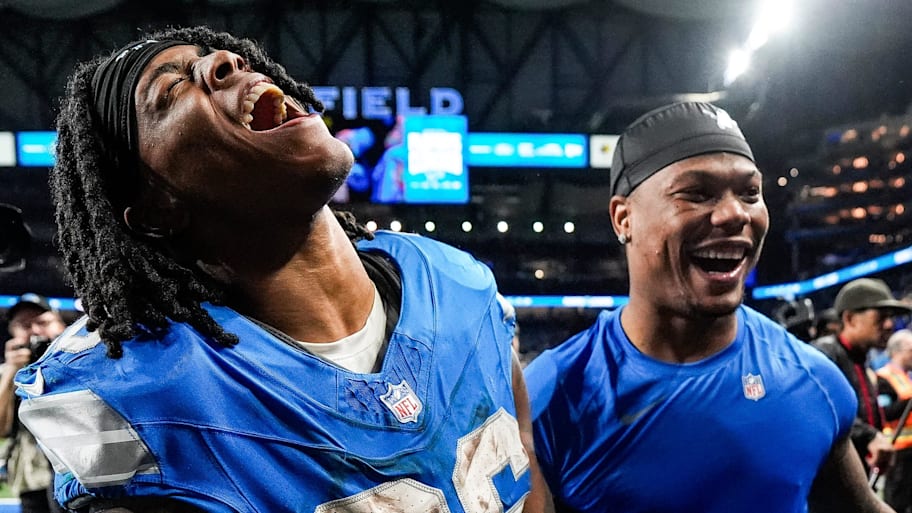
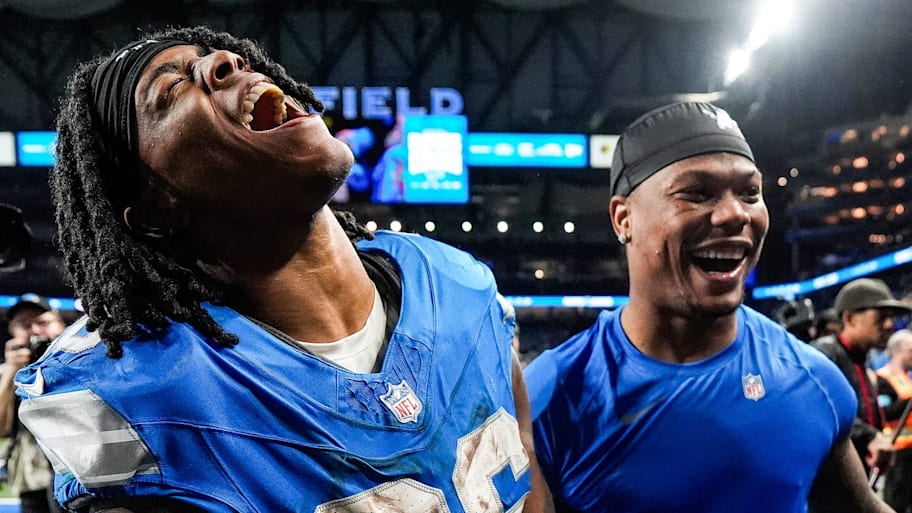
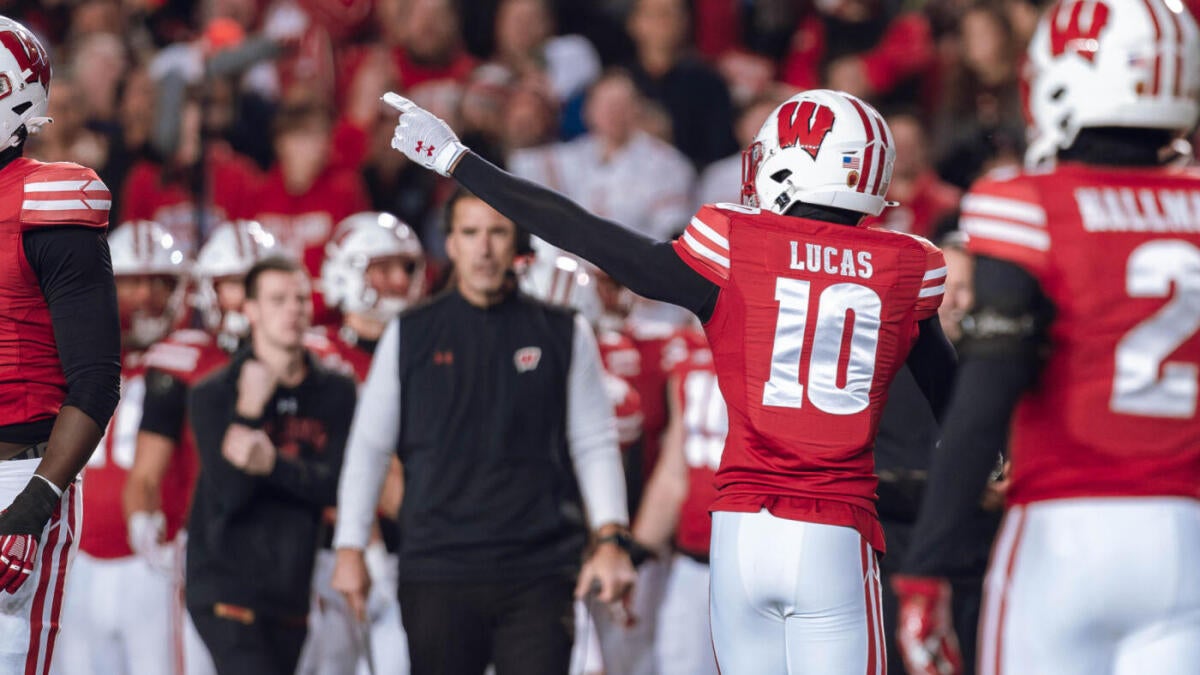
The legal enforceability of a revenue share agreement between a football player and institution is at the crux of a landmark legal case between two Power Four schools that could have wide-ranging implications.
The University of Wisconsin sued the University of Miami on Friday over alleged tampering and tortious interference of a two-year agreement with defensive back Xavier Lucas, a member of the Badgers’ 2024 team. Lucas is not mentioned by name in the lawsuit — only referred to as Student-Athlete A — but all of the details line up after he left Wisconsin in January to join Miami’s football program as the No. 1 cornerback in the transfer portal.
Wisconsin alleges that Miami intentionally interfered and tampered with Lucas’ deal with the Badgers not long after he received a substantial payment following the deal’s execution.
“Miami’s interference caused Student-Athlete A to breach the university contract, resulting in great harm to UW-Madison,” the complaint alleges. “Such harm includes, without limitations, loss of a student-athlete with valuable NIL rights who plaintiff UW-Madison anticipated having in UW-Madison’s program for the 2025 football season and beyond. Further harms include the loss of financial benefits UW-Madison stood to receive from Student-Athlete A’s continued participation in its football program.”
Wisconsin wants compensation for the financial and reputational harm it and collective VC Connect suffered in losing Lucas, but what it really wants is to set a precedent. If successful, Wisconsin’s lawsuit could have a significant impact in decreasing tampering and increasing roster stability in what has been years’ worth of unregulated free agency in college athletics. Its decision to bring a lawsuit at all is noteworthy — and months in the making.
The buildup to the lawsuit
Dec. 17, 2024, could prove to be one of the more important days in college football history.
That was the day Lucas informed his Wisconsin position coach he intended to enter the transfer portal, despite signing a two-year revenue share agreement with the school on Dec. 2. That request came as a complete surprise to Wisconsin coaches, especially because earlier that day Lucas had texted a Wisconsin coach about the jersey number he wanted for the 2025 season.
Wisconsin, after giving Lucas one of the largest revenue share deals on the team, had no interest in letting the defensive back leave. It believed the agreement was binding and was confused why Lucas wanted to leave after all his actions and words to that point indicated he was happy and excited to be a Badger moving forward.
While Lucas, a Florida native, relayed a family-related reason for wanting to transfer — Yahoo Sports reported that his father had a “serious, life-threatening illness,” according to his attorney — Wisconsin believed the true reason emerged Dec. 18 when one of Lucas’ family members said that Lucas had hosted a Miami coach and a prominent Miami alumnus at his home earlier that month.
(Darren Heitner, Lucas’ attorney, told CBS Sports of that allegation “This is false” and declined to comment further on the lawsuit).
Wisconsin informed Lucas and his family on Dec. 21 that it would not enter him into the transfer portal, believing there was a “reasonable expectation” that Lucas would continue “as a member of its football program until at least the conclusion of the university contract,” according to the lawsuit.
After Wisconsin refused to budge on entering Lucas into the portal, he hired Heitner on Jan. 7 to try to negotiate a resolution. Heitner threatened to file an antitrust lawsuit over Wisconsin allegedly violating NCAA rules in its refusal to enter Lucas and sent over a notice to terminate the revenue share agreement.
Eventually, after the two sides couldn’t come to an amicable resolution, Lucas withdrew from Wisconsin on Jan. 17 and enrolled at Miami, believed to be the first time a player navigated around the transfer portal in that fashion. Miami allegedly offered Lucas a more lucrative contract than the one Wisconsin offered, according to the complaint.
Wisconsin and the Big Ten both issued strong statements the next day that signaled to many a lawsuit would be coming soon.
Wisconsin said it would “evaluate all options going forward to determine the appropriate course of action” while the Big Ten said, in part, “As student-athletes become active participants in revenue sharing, it is critical that agreed-to obligations be respected, honored, and enforced.”
And yet, nothing happened. For months.
As Wisconsin opted to work in the shadows, some wondered whether the statements were just strong talk and no action.
Heitner told CBS Sports in a late-April interview that Wisconsin was making a smart decision to not sue his client.
“There was a lot of sword waving, a lot of threats made to me and to the University of Miami, which is completely separate, because of what they call tampering,” Heitner said. “But they claimed they were going to enforce the agreement, that they hired local counsel down in Miami but it never amounted to anything. Maybe they still decide that they want to bring an action, but it’s been complete silence for months now.”
The issue, in Heitner’s estimation at the time, was the perception of suing an athlete.
“You can win the battle and lose the war,” he said. “If you’re suing an athlete who committed and attended your institution, number one, you didn’t even follow the NCAA rules in putting him in the transfer portal within 48 hours that you’re obligated to do so. You already were anti-athlete in a strong sense, and now you’re going to sue the athlete? Do recruits then want to go to Wisconsin when there are numerous other comparable options?”
That was a consideration, according to a source familiar with the situation, but the opportunity to set a precedent outweighed the potential negative optics. Wisconsin had used a standard revenue share agreement drafted by the Big Ten that focused on Name, Image and Likeness rights, and if no one was willing to actually enforce it, it threatened to significantly diminish its value. Those involved believe it demanded a shifting of mindset from treating student-athletes like kids to acknowledging there was significant money now at stake.
“They’re being paid hundreds of thousands of dollars and now they’re not allowing their picture to be used on the billboard or they’re not honoring their obligations or they’re not doing what they’re supposed to be doing,” said one source with direct knowledge of the situation. “It’s a different dynamic when there’s dollars involved.”
The Big Ten left it up to Wisconsin (and any subsequent university) to do what it wanted but it supported the school strenuously defending the integrity of the contract.
“We believe the contract itself is enforceable,” according to one high-ranking Big Ten source with direct knowledge of the situation.
That source added that “confidence is pretty high that it can” hold up to a legal challenge.
“No one can tell me why a contract shouldn’t be enforceable between an adult and an institution,” the Big Ten source told CBS Sports. “Contracts are enforceable in every other aspect of the commercial regulatory enterprise.”
Wisconsin ultimately opted not to include Lucas in its lawsuit, instead focusing on Miami’s alleged transgressions of tampering and tortious interference. In a statement to CBS Sports, the school said, in part, “While we reluctantly bring this case, we stand by our position that respecting and enforcing contractual obligations is essential to maintaining a level playing field.”
The stakes of the lawsuit
Talk to any college football coach and it’s a good bet he’ll have a strong distaste for tampering. Too many coaches and personnel directors to count have described to CBS Sports blatant and rampant tampering throughout college football that despite being against NCAA rules has gone unchecked because of nonexistent enforcement. The workarounds are so easy that it feels like a herculean task to police, let alone fix. It works as simply as this in many scenarios:
- A school calls a personal trainer connected to a player they’re interested in.
- The trainer calls the player
- The courtship begins
TCU coach Sonny Dykes summed it up well to us in a previous interview.
“There needs to be severe repercussions for it, but at the same time, you can’t prove any of this stuff. You can’t subpoena phone records,” Dykes said. “I’m a big believer in don’t have speed limits if you’re not going to write tickets. Let’s not have a bunch of rules if they aren’t going to be enforced. All that does is cheapen the game and our profession, quite frankly. You better have someone to write tickets to enforce those rules and right now there’s nobody doing that.”
If Wisconsin can successfully prove Miami tampered — and there are real ramifications for violating those rules — it could have a big impact on an industry seemingly crying out for help.
“I think a lawsuit of this magnitude certainly puts people on guard that the possibility of being sued or being a part of a lawsuit is a real thing,” Mitch Gilfillan, an attorney for Quinn Johnston and former Division I college basketball coach, told CBS Sports.
The key component will be the enforcement, whether in the court system in this case or within the new College Sports Commission which will police NIL and revenue share issues moving forward. In the NFL, the Miami Dolphins lost a first-round draft pick, were fined $1.5 million and owner Stephen Ross was suspended for being found guilty of tampering with quarterback Tom Brady. A penalty of that magnitude naturally serves as a deterrent against other bad behavior, though professional leagues have different protections, negotiated through collective bargaining, than currently available within college athletics.
“There need to be tighter parameters around what and what is not considered interference of someone’s trade,” Gilfillan said. “The NBA and the collective bargaining agreement has specific tampering restrictions for a reason that you are not allowed to do various things because it interferes with somebody’s contract they are under. When you’re under contract with a university it’s a fine line of employer-employee relationship, should somebody be allowed to poach you or tamper with you knowing you’re under contract?”
To Gilfillan’s point, it didn’t take long after Wisconsin filed its lawsuit for there to be online speculation from lawyers and sports industry folks that it could raise athlete employment issues.
The Big Ten revenue share template that Wisconsin used states that it is for NIL rights and not pay-for-play, though the lawsuit also claims that Lucas agreed to not play for another school for the duration of the two-year contract. Additionally, it claimed the revenue share agreement granted it “exclusive license” to Lucas’ NIL rights for those two years and that he could not grant them to any other institution during that time period.
The potential risks don’t stop there, however.
If a judge rules that the revenue share agreements aren’t binding and enforceable, it could open up the floodgates. Prominent football coaches such as Georgia’s Kirby Smart have recently advocated for reducing the transfer portal to only one winter window. But if withdrawing and enrolling elsewhere, despite having signed a contract, as Lucas did is a viable strategy with no negative ramifications, what’s stopping other players from leaving whenever they want without having to enter the portal as NCAA rules demand? If Miami wins, it could signal to some that tampering is fair game, too.
This all has the potential to turn a sport that has already frequently been described as the Wild West into an even bigger free-for-all right when leaders believed long-awaited solutions were finally coming with the House settlement approved. In the future under the new CSC rules, a school like Miami would pay a buyout that would count against its $20.5 million cap to acquire a player who entered the transfer portal still under contract. That and much more could be in question if the courts rule the contracts aren’t binding.
Lawsuits have besieged college athletics for years now, dramatically reshaping core components of a multi-billion dollar ecosystem. Wisconsin v. Miami, the first in what could be multiple lawsuits over athlete revenue share agreements, has the potential to do the same.
NIL
The new college sports agency is rejecting some athlete NIL deals with donor-backed collectives
By EDDIE PELLS – AP National Writer The new agency in charge of regulating name, image, likeness deals in college sports sent a letter to schools Thursday saying it had rejected deals between players and donor-backed collectives formed over the past several years to funnel money to athletes or their schools. Those arrangements hold no […]

By EDDIE PELLS – AP National Writer
The new agency in charge of regulating name, image, likeness deals in college sports sent a letter to schools Thursday saying it had rejected deals between players and donor-backed collectives formed over the past several years to funnel money to athletes or their schools.
Those arrangements hold no “valid business purpose,” the memo said, and don’t adhere to rules that call for outside NIL deals to be between players and companies that provide goods or services to the general public for profit.
The letter to Division I athletic directors could be the next step in shuttering today’s version of the collective, groups that are closely affiliated with schools and that, in the early days of NIL after July 2021, proved the most efficient way for schools to indirectly cut deals with players.
Since then, the landscape has changed yet again with the $2.8 billion House settlement that allows schools to pay the players directly as of July 1.
Already, collectives affiliated with Colorado, Alabama, Notre Dame, Georgia and others have announced they’re shutting down. Georgia, Ohio State and Illinois are among those that have announced plans with Learfield, a media and technology company with decades of licensing and other experience across college athletics, to help arrange NIL deals.
Outside deals between athlete and sponsor are still permitted, but any worth $600 or more have to be vetted by a clearinghouse called NIL Go that was established by the new College Sports Commission.
In its letter to the ADs, the CSC said more than 1,500 deals have been cleared since NIL Go launched on June 11, “ranging in value from three figures to seven figures.” More than 12,000 athletes and 1,100 institutional users have registered to use the system.
But the bulk of the letter explained that many deals could not be cleared because they did not conform to an NCAA rule that sets a “valid business purpose” standard for deals to be approved.
The letter explained that if a collective reaches a deal with an athlete to appear on behalf of the collective, which charges an admission fee, the standard is not met because the purpose of the event is to raise money to pay athletes, not to provide goods or services available to the general public for profit.
The same would apply to a deal an athlete makes to sell merchandise to raise money to pay that player because the purpose of “selling merchandise is to raise money to pay that student-athlete and potentially other student-athletes at a particular school or schools, which is not a valid business purpose” according to the NCAA rule.
A deal, however, could be approved if, for instance, the businesses paying the players had a broader purpose than simply acting as a collective. The letter uses a golf course or apparel company as examples.
“In other words, NIL collectives may act as marketing agencies that match student-athletes with businesses that have a valid business purpose and seek to use the student’s NIL to promote their businesses,” the letter said.
AP college sports: https://apnews.com/hub/college-sports
NIL
Angel Reese calls out Robert Griffin III, claims he’s lying ‘for clout’ in wake of Caitlin Clark take
Angel Reese called out Robert Griffin III for his take on her not liking Caitlin Clark. Without saying Griffin’s name, Reese went after him, who said he talked to people in her inner circle. “Lying on this app when everybody know the first and last name of everybody in my circle for clout is nastyyyy […]
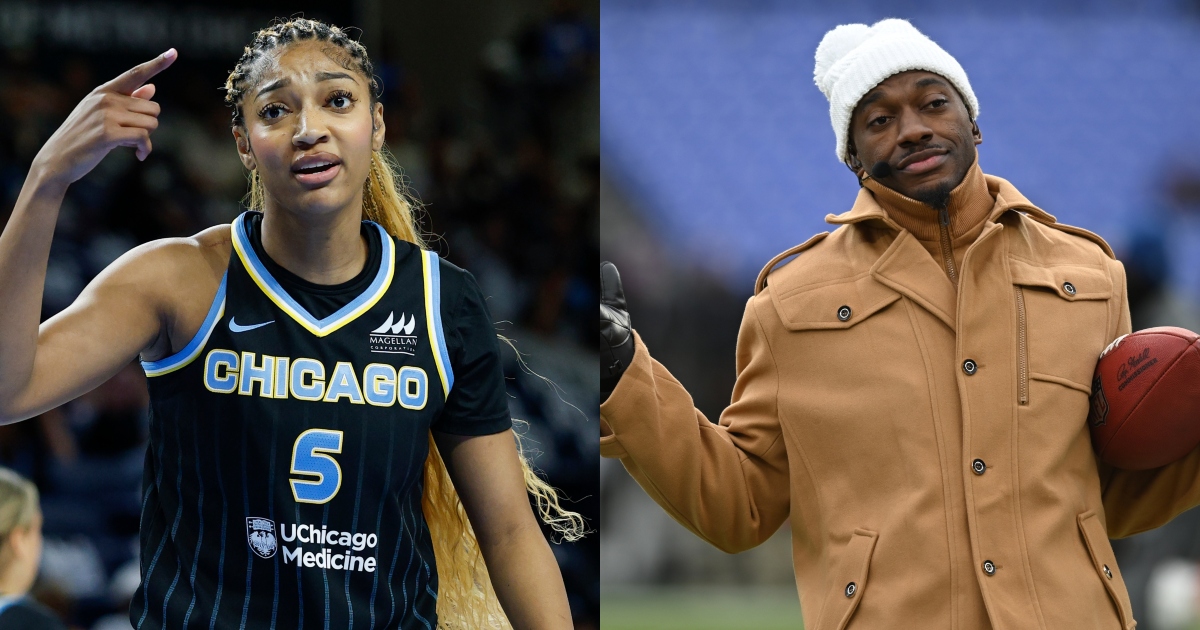
Angel Reese called out Robert Griffin III for his take on her not liking Caitlin Clark. Without saying Griffin’s name, Reese went after him, who said he talked to people in her inner circle.
“Lying on this app when everybody know the first and last name of everybody in my circle for clout is nastyyyy work,” Angel Reese wrote. This came after Griffin called out people who attacked Reese after she was named a cover athlete for NBA 2K26. In the X/Twitter post, the former NFL quarterback mentioned that he spoke to Reese’s inner circle about the Chicago Sky star not liking Cark.
“People in Angel’s inner circle called me and told me I was right and Angel Reese has grown to hate Caitlin Clark because of the media always asking her about Caitlin and being constantly compared to her,” Griffin wrote. “Some people made it about race, but I never did and never will. Instead of becoming the villain in anyone’s story, I decided to just not.”
What Robert Griffin III said about Angel Reese and Caitlin Clark
Robert Griffin III originally shared his take on Angel Reese and Caitlin Clark in May after Clark fouled Reese in the Sky vs. Indiana Fever game. Reese went after the Clark before she was calmed down by the Sky coaches.
“So why do I think Angel Reese hates Caitlin Clark? It could be the fact that Aliyah Boston had to save Angel Reese from ending her career… After the foul, Caitlin Clark put on Angel Reese, and Angel Reese tried to hit her,” Griffin said at the time. “But if it wasn’t for Aliyah Boston putting her arms in the way, Angel Reese would not be playing basketball anymore, because she was going to sucker punch Caitlin Clark. Now, you tell me a time when you’ve seen somebody get fouled on a basketball court in a professional league, where they try to almost sucker punch somebody that they were friends with, because of a hard foul?”
Reese and Clark have been competing against each other since they were in college. Reese played at LSU, and Clark played at Iowa. Reese and LSU defeated Clark and Iowa in the 2023 National Championship Game, and the two went on to enter the WNBA in 2024. Clark was named WNBA Rookie of the Year last season, and Reese finished second in Rookie of the Year voting.
NIL
NCAA basketball committees consider March Madness expansion
The idea of expanding the tournament picked up steam in the spring when NCAA President Charlie Baker said it could add value. WASHINGTON — The committees for men’s and women’s Division I basketball met this week to discuss possible expansion of the March Madness tournaments, but made no immediate decisions or recommendations. “The still viable […]

The idea of expanding the tournament picked up steam in the spring when NCAA President Charlie Baker said it could add value.
WASHINGTON — The committees for men’s and women’s Division I basketball met this week to discuss possible expansion of the March Madness tournaments, but made no immediate decisions or recommendations.
“The still viable outcomes include the tournaments remaining at 68 teams or expanding the fields to either 72 or 76 teams in advance of the 2026 or 2027 championships,” Dan Gavitt, the NCAA senior vice president of basketball, said in a statement Thursday.
The idea of expanding the tournament picked up steam in the spring when NCAA President Charlie Baker said it could add value and that he’d like to see the issue resolved in the next few months.
He said the NCAA has had “good conversations” with TV partners CBS and Warner Bros., whose deal runs through 2032 at the cost of around $1.1 billion a year. Baker also mentioned increasingly difficult logistics involved with adding teams to what is now known as the “First Four” — a series of four games played on Tuesday and Wednesday of the first week to place four teams into the 64-team bracket.
Though there has been no concrete plan for how expansion would work, speculation has centered on bringing more at-large teams, likely from major conferences, into the 64-team bracket. Such a move that would come at the expense of champions of lower-level conferences.
Currently, two of the First Four games involve 16 seeds — teams that automatically qualify by winning lower-ranked conferences — while two more involve at-large teams often seeded 11 or 12. For instance, in 2021, UCLA made the Final Four as an 11 seed that also played in the First Four.
“I don’t accept that that model just continues in the future,” Southeastern Conference commissioner Greg Sankey said at league meetings in May.
He used the example of North Carolina State advancing to the Final Four as an 11 seed in 2023 as how bubble teams from big conferences can make long runs in the tournament.
“You could go ask my colleagues in the (automatic qualifier) conferences what should happen, and I’m certain they want that split to continue for life,” Sankey said. “But you’ve got some really, really good teams … that I think should be moved into the tournament.”
Any recommendation for expansion would have to be approved by the NCAA’s Division I board, which next meets in August.
AP college basketball: https://apnews.com/hub/ap-top-25-college-basketball-poll and https://apnews.com/hub/college-basketball
NIL
New college sports agency is rejecting some athlete NIL deals with donor
The new agency in charge of regulating name, image, likeness deals in college sports sent a letter to schools Thursday saying it had rejected deals between players and donor-backed collectives formed over the past several years to funnel money to athletes or their schools. Those arrangements hold no “valid business purpose,” the memo said, and […]

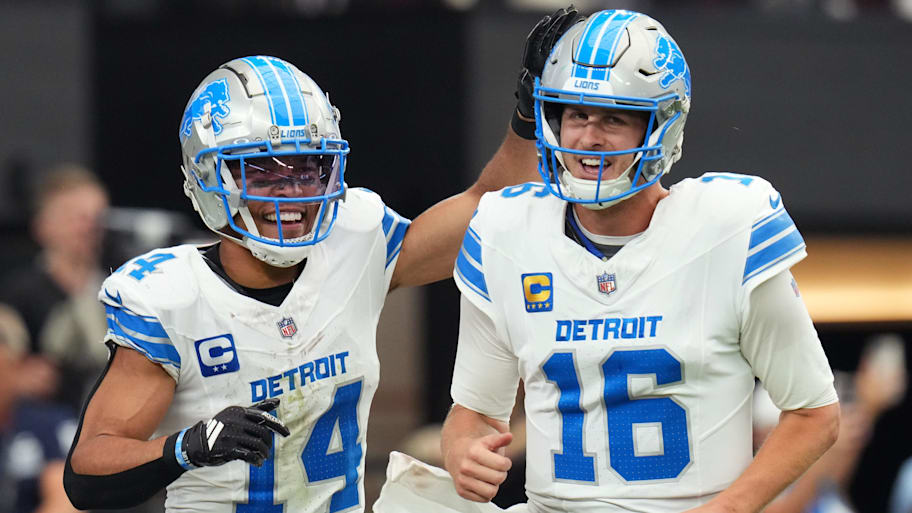

The new agency in charge of regulating name, image, likeness deals in college sports sent a letter to schools Thursday saying it had rejected deals between players and donor-backed collectives formed over the past several years to funnel money to athletes or their schools.
Those arrangements hold no “valid business purpose,” the memo said, and don’t adhere to rules that call for outside NIL deals to be between players and companies that provide goods or services to the general public for profit.
The letter to Division I athletic directors could be the next step in shuttering today’s version of the collective, groups that are closely affiliated with schools and that, in the early days of NIL after July 2021, proved the most efficient way for schools to indirectly cut deals with players.
Since then, the landscape has changed yet again with the $2.8 billion House settlement that allows schools to pay the players directly as of July 1.
Already, collectives affiliated with Colorado, Alabama, Notre Dame, Georgia and others have announced they’re shutting down. Georgia, Ohio State and Illinois are among those that have announced plans with Learfield, a media and technology company with decades of licensing and other experience across college athletics, to help arrange NIL deals.
Outside deals between athlete and sponsor are still permitted, but any worth $600 or more have to be vetted by a clearinghouse called NIL Go that was established by the new College Sports Commission.
In its letter to the ADs, the CSC said more than 1,500 deals have been cleared since NIL Go launched on June 11, “ranging in value from three figures to seven figures.” More than 12,000 athletes and 1,100 institutional users have registered to use the system.
But the bulk of the letter explained that many deals could not be cleared because they did not conform to an NCAA rule that sets a “valid business purpose” standard for deals to be approved.
The letter explained that if a collective reaches a deal with an athlete to appear on behalf of the collective, which charges an admission fee, the standard is not met because the purpose of the event is to raise money to pay athletes, not to provide goods or services available to the general public for profit.
The same would apply to a deal an athlete makes to sell merchandise to raise money to pay that player because the purpose of “selling merchandise is to raise money to pay that student-athlete and potentially other student-athletes at a particular school or schools, which is not a valid business purpose” according to the NCAA rule.
A deal, however, could be approved if, for instance, the businesses paying the players had a broader purpose than simply acting as a collective. The letter uses a golf course or apparel company as examples.
“In other words, NIL collectives may act as marketing agencies that match student-athletes with businesses that have a valid business purpose and seek to use the student’s NIL to promote their businesses,” the letter said.
NIL
Robert Griffin III fires back at Angel Reese over liar accusation, Caitlin Clark ‘hate’
Robert Griffin III is not backing down from Angel Reese, who went after him for claiming to have spoken to her inner circle about the Caitlin Clark hate. On X/Twitter, the former NFL quarterback told Reese that she should “tighten” her circle instead of “trying to check” him. “I spoke up in support of Angel […]
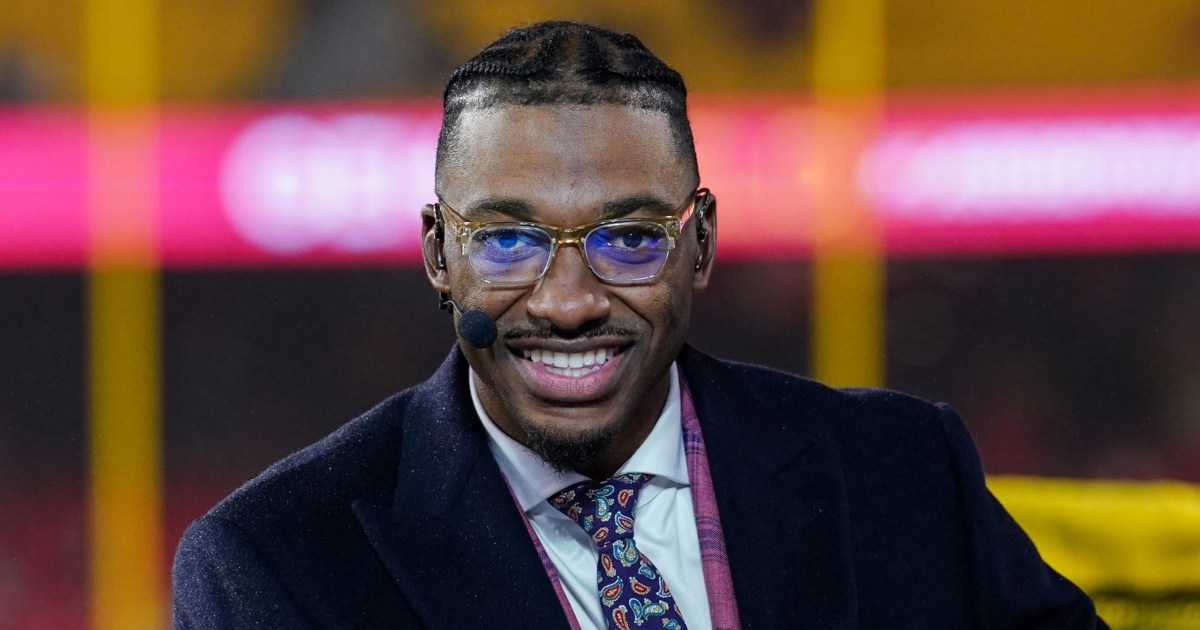
Robert Griffin III is not backing down from Angel Reese, who went after him for claiming to have spoken to her inner circle about the Caitlin Clark hate. On X/Twitter, the former NFL quarterback told Reese that she should “tighten” her circle instead of “trying to check” him.
“I spoke up in support of Angel Reese against racism not to start drama,” Robert Griffin III wrote. “But I won’t let anyone twist the truth just because it’s inconvenient to them. Instead of trying to check me, just tighten up your circle. They calling me and saying you hate Caitlin Clark, not the other way around. I have zero interest in being the villain in anyone’s story. I just want to have fun, tell the truth and celebrate sports. But I won’t pretend or lie just to protect feelings.”
This began on Thursday morning when Griffin went after the fans who were attacking Angel Reese for being on the cover of NBA 2K26. In the social media post, Griffin said people in Reese’s inner circle talked to him about her relationship with Caitlin Clark.
“People in Angel’s inner circle called me and told me I was right and Angel Reese has grown to hate Caitlin Clark because of the media always asking her about Caitlin and being constantly compared to her,” Griffin wrote. Reese saw the post later in the morning and went after Griffin.
More on Robert Griffin III and Angel Reese
“Lying on this app when everybody know the first and last name of everybody in my circle for clout is nastyyyy work,” Reese wrote. It’s clear Reese doesn’t believe that Griffin spoke to anyone close to her about Clark.
In May, Griffin said that Reese hates Clark and explained his reason. “It could be the fact that Aliyah Boston had to save Angel Reese from ending her career,” Griffin said about an incident between Clark and Reese during a Chicago Sky vs. Indiana Fever game. “After the foul, Caitlin Clark put on Angel Reese, and Angel Reese tried to hit her. But if it wasn’t for Aliyah Boston putting her arms in the way, Angel Reese would not be playing basketball anymore, because she was going to sucker punch Caitlin Clark. Now, you tell me a time when you’ve seen somebody get fouled on a basketball court in a professional league, where they try to almost sucker punch somebody that they were friends with, because of a hard foul?”
Reese, who played at LSU, is having a strong start to her WNBA career. The 23-year-old is averaging 13.3 points and 12.8 rebounds this year. In 2024, Reese finished second in Rookie of the Year voting (behind Clark) after averaging 13.6 points and 13.1 rebounds.
NIL
Texas Athletics, Learfield partner to launch Longhorn Sports Agency to manage NIL …
Texas Athletics announced in late June that it would be partnering with Learfield to launch the Longhorn Sports Agency, an initiative to “optimize (Name, Image and Likeness) operations and maximize opportunities for Longhorn student-athletes”. Learfield is the top media company in the world of college athletics, with ties to over 1,200 universities and connections to […]

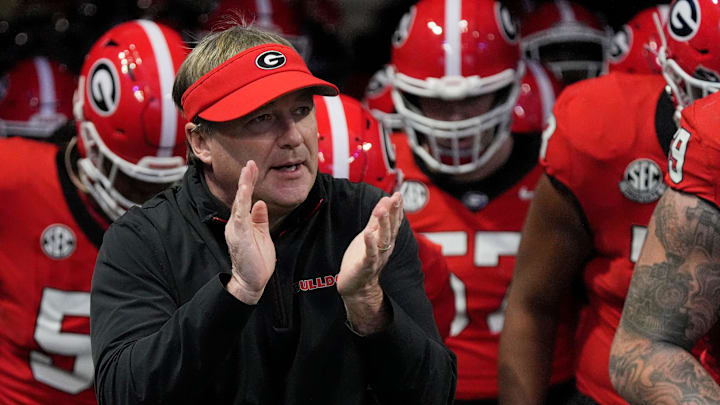

Texas Athletics announced in late June that it would be partnering with Learfield to launch the Longhorn Sports Agency, an initiative to “optimize (Name, Image and Likeness) operations and maximize opportunities for Longhorn student-athletes”.
Learfield is the top media company in the world of college athletics, with ties to over 1,200 universities and connections to over 12,000 national and local brands. These connections will significantly assist Texas when it navigates what remains of the NIL world after the House v. NCAA settlement on June 6.
“The Longhorn Sports Agency reflects our commitment to building an industry-leading infrastructure that supports our student-athletes and strengthens the Texas brand,” Texas Athletics director Chris Del Conte said.
Advertisement
The partners plan to run the Longhorn Sports Agency using three objectives. The first is to create “on-campus NIL leadership,” making advising opportunities readily available for student-athletes on the Forty Acres.
The second is to assist athletes in creating content campaigns, with the aim of building and eventually monetizing a strong personal brand for each student-athlete.
Lastly, the Longhorn Sports Agency will provide access to “deal facilitation and compliance technology through the Compass NIL platform”.
Compass NIL is an app that stores all NIL exchanges in one place, providing athletes with a platform to receive deal opportunities, make agreements and receive payment from those deals through a digital wallet. Created by Learfield, this platform plays a vital role in the structure of the Longhorn Sports Agency.
“With the House settlement and the current landscape of college athletics, it’s critical to accelerate innovation, and we’re proud to support Texas as they continue to lead with a bold, future-focused approach to NIL,” said Solly Fulp, Learfield’s executive vice president of NIL growth and development.
Following the three initiatives, with the assistance of Compass NIL, Texas Athletics will staff the agency with NIL executives accordingly, including a director of NIL business development, an associate of business development and an NIL marketing partnership manager.
These executives will work with a group of Learfield staff, consisting of two supervising producers, an editor and a social content producer. The Learfield content creation team and Texas Athletics NIL executives will work with Longhorn Network and Longhorn Sports Properties to maximize athlete profit through storytelling and personal branding. This group of staff will work under Lucas Motta, vice president of Longhorn Sports Properties.
“Everything we do at Texas is about setting a high standard, and NIL is no different,” Del Conte said. “This initiative is about doing NIL the right way, with intention, innovation and the full backing of our partner, Learfield, who knows how to achieve excellence in NIL.”
-

 Technology2 weeks ago
Technology2 weeks agoPet fitness and wellness trends for a healthier and happier dog
-

 College Sports2 weeks ago
College Sports2 weeks agoWAC to Rebrand to UAC, Add Five New Members in 2026
-

 Motorsports1 week ago
Motorsports1 week agoWhy Cosmetics are Making Up for Lost Time in Women’s Sports
-
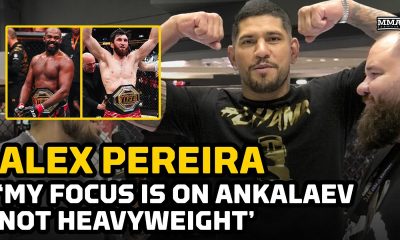
 Professional Sports3 weeks ago
Professional Sports3 weeks agoAlex Pereira responds to rumors of UFC heavyweight title fight with threatening message
-

 College Sports3 weeks ago
College Sports3 weeks agoAlabama Basketball
-

 Professional Sports3 weeks ago
Professional Sports3 weeks agoFrancis Ngannou sends Dana White a message following Jon Jones' shock UFC retirement
-

 College Sports2 weeks ago
College Sports2 weeks agoA new era of Dickinson hockey begins behind the bench – The Dickinson Press
-

 Motorsports2 weeks ago
Motorsports2 weeks agoNASCAR This Week – Patriot Publishing LLC
-
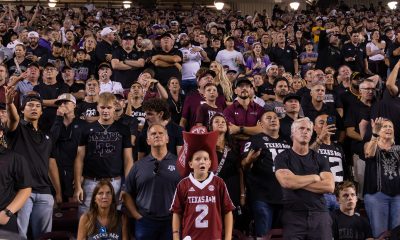
 Sports3 weeks ago
Sports3 weeks agoSEC Conference imposing a fine will create the opposite effect.
-

 Health2 weeks ago
Health2 weeks agoFlorida assault survivor shares hope for change with new mental health law































